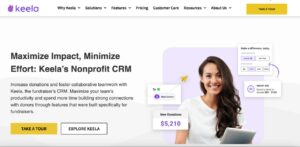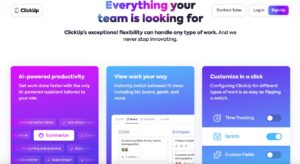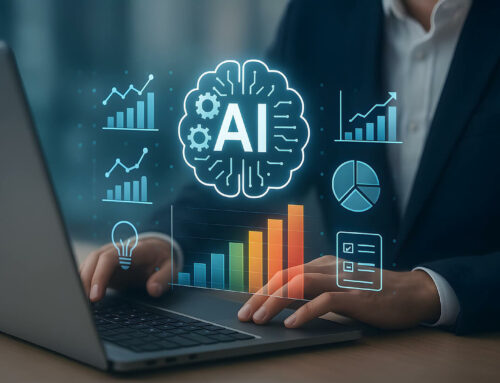Introduction
Technology keeps moving forward. More and more nonprofits are using artificial intelligence (AI) to help them raise donations and connect with people. Artificial intelligence has many tools and methods that can help nonprofits reach their goals more easily. In this piece, we will discuss the potential benefits of AI for nonprofits, and the available tools they can employ.
AI Tools for Nonprofits
Let’s dive into some cool AI tools that help solve old problems, so organizations can run better, connect with supporters, and make a bigger difference:
Keela
Keela is a reliable platform that has been uniquely designed to meet the specific needs of nonprofit organizations. Its goal is to streamline operations and build stronger relationships with donors. With the help of a team focused on the nonprofit sector, Keela offers a bunch of user-friendly resources to simplify donor management, nonprofit marketing, and improve fundraising efforts.
With a focus on developing donor relationships, Keela offers user-friendly tools for nonprofits to track donor engagements, manage contributions, and streamline communication. In addition, Keela uses AI technology to better understand donor actions, including its innovative Smart Ask feature, which predicts how donors will behave and advises on fundraising strategies, ensuring more targeted and effective donation requests. Automatic communication solutions allow nonprofits to effectively engage with donors, ultimately leading to saved time and resources and a greater influence.
Keela’s pricing options:
Keela offers a pricing calculator to determine the price depending on the number of contacts and additional features.
- For up to 1000 contacts from 99 $/month
- For 1001-2500 contacts from 159 $/month
- For 2600-5000 contacts from 209 $/month
- For 5100-7100 contacts from 259 $/month
- For 7600 and more from 299 $/month
Image source: Keela.com
ClickUP
ClickUp is another project management software for nonprofits. It lets you customize task and project management workflows to suit your specific needs. Grant and budget management tools help with financial planning and transparency. Fundraising support features simplify donor management and campaign tracking, and the intuitive Calendar view makes volunteer coordination seamless.
ClickUp also has collaboration tools in it to help multiple assignees track progress and work together in real-time. With AI technologies integrated into ClickUp, it can provide valuable insights and automate processes. Nonprofits can use this data to inform their decisions and achieve significant outcomes. This platform allows them to efficiently oversee projects, involve donors, and fulfill their goals.
ClickUp pricing:
- Free Forever
- Unlimited: $7/month per user
- Business: $12/month per user
- Enterprise: Contact for pricing
- ClickUp Brain: Available on all paid plans for $5/Workspace member/month
Image source: Clickup.com
Coefficient
Coefficient is a platform designed to make data management easier for nonprofits. It connects to Google Sheets and Excel, so you can easily import live data from any source. With Coefficient, you don’t have to enter data manually anymore. The platform refreshes data automatically, so your reports and dashboards are always up-to-date.
In addition to handling data, Coefficient has live data dashboards. These dashboards let nonprofits see data in real-time. Nonprofits can use templates to share visualizations and reports with their teams. Coefficient’s AI Copilot feature gives valuable insights to keep nonprofits informed and ahead of the competition.
Coefficient also has free google sheets and excel templates that help nonprofit organizations manage their operations. They make it easier to keep financial records and make sure they follow accounting rules. This helps create trust with donors and the public.
Pricing options:
- Free: Ideal for those just starting out, this plan allows users to get started with Coefficient at no cost.
- Starter: $49 per month
- Pro: $99 per user per month
- Enterprise: Coefficient provides custom pricing and volume discounts for larger nonprofits that have complex needs.
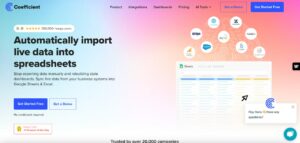
Image source: Coefficient.com
Donorbox CRM
Donorbox offers a powerful AI nonprofit CRM that simplifies donor management, improves engagement, and maximizes fundraising.
It is designed for nonprofits and it also combines automation with a dashboard to help teams save time and build stronger donor relationships.
With integrated smart tools like email marketing, real-time segmentation, and an AI assistant (Jay·AI), nonprofits can personalize their outreach and streamline daily tasks.
Donorbox CRM also includes features like built-in donor timelines, recurring donation management, task assignments, and dynamic reports.
Pricing: Currently in beta mode, nonprofits can join the waitlist for early access and exclusive onboarding support.
Funraise
Funraise is an all-in-one fundraising platform tailored specifically for nonprofits. It focuses on helping organizations raise more funds, engage donors, and manage campaigns efficiently. With tools built by nonprofit professionals, Funraise streamlines online giving, donor management, and event fundraising while offering actionable insights for strategic growth.
Create branded donation forms, peer-to-peer campaigns, and automated emails to boost engagement and conversions.
Funraise allows nonprofits to track donor interactions, segment supporters for targeted outreach, and manage recurring donations—all from a single dashboard. Its AI-powered analytics provide real-time insights into campaign performance and donor behavior, enabling organizations to optimize their fundraising strategies. Funraise also supports event ticketing, silent auctions, and mobile fundraising, helping nonprofits connect with supporters anytime, anywhere.
Funraise pricing options:
Free tier available for small organizations
Paid plans: Premium plans starting at $99/month, with additional features and custom options for larger organization
Benefits of AI in Nonprofit Fundraising
Effectiveness in Identifying Potential Donors
AI-powered analytics tools can analyze vast amounts of data to identify individuals who are most likely to donate to a nonprofit organization. Here are some specific ways AI can do that:
- Data Mining and Analysis: Using AI algorithms makes it possible to analyze large quantities of information, such as donor records, social media engagement, and internet activity, to identify potential contributors.
- Segmentation Tools: AI segmentation tools classify donors based on factors like giving capacity and interests. This allows nonprofits to customize their communication strategies for better results.
- Personalized Communication: By analyzing donor profiles like historical data, including past donations, communication preferences, and interactions, AI algorithms can segment donors based on various criteria, such as donation frequency, donation amount, and demographics. Donor Segmentation allows AI to tailor messages to specific donor groups, which will lead to higher levels of engagement and response.
- Cost Efficiency: 2023 research from Accenture found that AI can automate 40% of the hours of work like data analysis and communication. This not only streamlines operations but also significantly affects the nonprofit job market. By automating routine tasks, nonprofits can reallocate their workforce towards more strategic initiatives, potentially creating new job roles that focus on advanced AI management and oversight. This way, AI helps nonprofits operate more efficiently, maximizing the impact of their fundraising efforts while minimizing costs on repetitive labor.
Personalization
In 2023, the Google for Nonprofits program donated over $2 billion in Google Ad Grants and Google Workspace access to nonprofits globally. This has great potential for personalization as Google Ad Grants lets non-profits use targeted advertising. This way they can reach specific groups of people with personalized ad campaigns. AI uses data to give non-profits better ideas for how to reach out to donors. This includes creating more interesting content and figuring out what donors might like. Non-profits can then use this information to give donors better experiences across different communication channels. This helps non-profits connect better with donors on a more personalized level and get more support.
On top of that, AI helps personalize email marketing by analyzing donor data to create relevant content like personalized subject lines, greetings, and content recommendations. Automated algorithms can also optimize send times and filter donor lists based on behavior. This way messages better resonate with recipients, which, in turn, improves engagement and conversion rates over time.
Enhanced Support Services
Artificial intelligence improves customer support services for nonprofits. It gives one-on-one help, makes processes more efficient, and uses resources better. Chatbots give quick help, while AI looks at how donors act to make personalized suggestions and ways to keep them.
Automating tasks reduces the time support staff spends on them, and analyzing feedback in real time helps make things better all the time.
Content Creation
The 2024 Nonprofit Communications Trends Report states that about 81% of nonprofits use artificial intelligence (AI). They mainly use AI to create content because it can create interesting and personalized messages. Through natural language processing algorithms, AI can understand donor profiles and preferences, which helps create unique emails, social media posts, and website content that are meaningful and interesting. As a result, more people get involved in the nonprofit’s cause and support it.
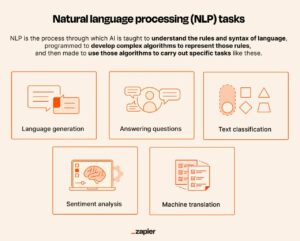
Cybersecurity
Artificial intelligence (AI) is crucial in strengthening cybersecurity and detecting fraud for nonprofit organizations. Paired with a secure password manager for non profits, these AI tools provide layered protection for sensitive donor information and internal platforms such as point of sale system
Here’s how it helps:
- Advanced Threat Detection: AI algorithms use real-time analysis of network traffic, user behavior, and system logs to detect any irregular activity that may indicate a cyber threat. This allows nonprofits to quickly respond to potential security breaches and minimize risks.
- Behavioral Analytics: AI can recognize normal user actions and detect any deviations that could indicate fraudulent behavior. By studying past data, AI can identify unusual patterns or anomalies in user behavior, like unauthorized login attempts or abnormal transactions, and take immediate action to investigate and address them.
- API Penetration Testing: Nonprofit organizations can enhance the security of their systems and applications by using AI-powered API penetration testing tools. These tools imitate cyber attacks and detect weaknesses and vulnerabilities in API endpoints. Through proactive testing, nonprofits can discover and resolve potential entry points for cyber threats, safeguarding the confidentiality and integrity of donor data and organizational assets. When considering various tools, it is important to distinguish between a high-quality tool and a bad one. Here are the key elements to look for in a reliable API pentesting tool:
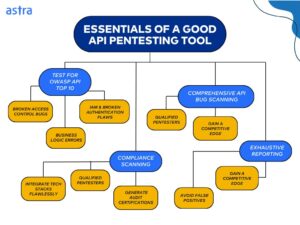
Image source: Getastra.com
When considering various tools, it is important to distinguish between a high-quality tool and a bad one. Here are the key elements to look for in a reliable API pentesting tool:
Challenges and Considerations for Nonprofits Adopting AI
While AI offers numerous benefits for nonprofits, there are also challenges and considerations to be aware of when adopting this technology:
- Cost: AI implementation can be expensive, especially for smaller nonprofits with limited budgets. But it’s important to remember that even though AI costs money at first, the benefits in the long run can make it worth it.
- Data Quality and Accessibility: AI requires good-quality data to work effectively. Nonprofits might find it challenging to access the right kind of data they need for AI analysis. Additionally, managing this data properly and making sure it’s accurate and complete can be a difficult task.
- Staff Training and Expertise: Nonprofits may lack the necessary expertise and resources to effectively implement and manage AI technologies. Training staff on AI tools and methodologies may require additional time and investment.
- Ethical and Privacy Concerns: Using AI technology brings up worries about ethical and privacy issues concerning data, biased algorithms, and lack of transparency. Nonprofit organizations must handle these concerns with caution to use AI responsibly.
- Integration with Existing Systems: Integrating AI into existing fundraising processes and systems can be complex and challenging. Nonprofits may encounter compatibility issues and resistance to change from staff accustomed to traditional methods. User-friendly software for nonprofits facilitates this transition and improves efficiency, often integrating seamlessly with popular tools to maximize AI benefits.
Strategies for training staff and integrating AI into existing fundraising processes
Staff training
40% of nonprofits said nobody in their organization was educated in AI. That’s why creating detailed training programs to teach staff about AI in fundraising is essential. There is a great productivity guide for Gemini for Google Workspace on how to use generative AI tools, write AI-generated grant proposals, generate images for marketing assets, etc.
Other than that, you can find other programs that would align with your company’s culture and needs. These programs can include workshops, online courses, and hands-on training. Just make sure to design them based on the goals and skills of your team.
Integration into Existing Processes
To use AI in your work, you will have to start by defining your goals. Figure out what resources you’ll need, think about the budget, and if your current systems can work with AI.
One way to improve the integration process is by using project management tools like Jira that keep the integration process on track and in line with your organization’s goals. They make sure that all important points are included and that there’s a clear plan for integrating AI successfully. By using Jira templates you can break down tasks, assign responsibilities, and set milestones, which helps teams collaborate effectively and track progress.
External Training Resources
External training options like industry conferences, online seminars, and certification programs to add to internal training. These resources provide valuable knowledge from AI experts and people working in the nonprofit sector.
Conclusion
Nonprofits are revolutionizing their fundraising and engagement efforts with the help of AI. By using AI tools like Keela, ClickUp, and Coefficient, organizations can streamline operations, connect with donors, and drive greater results. AI can help nonprofits find donors, improve services, and create personalized content. Even with challenges like cost and data access, AI has clear benefits. With the right training, nonprofits can use AI to raise more money, keep donors engaged, and reach their goals.
